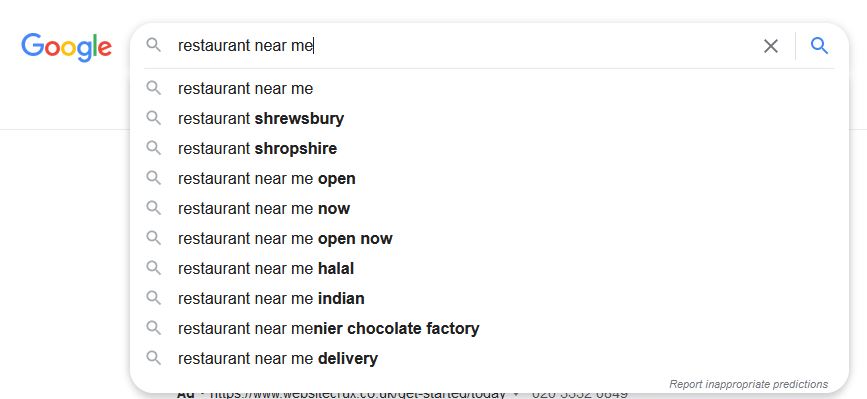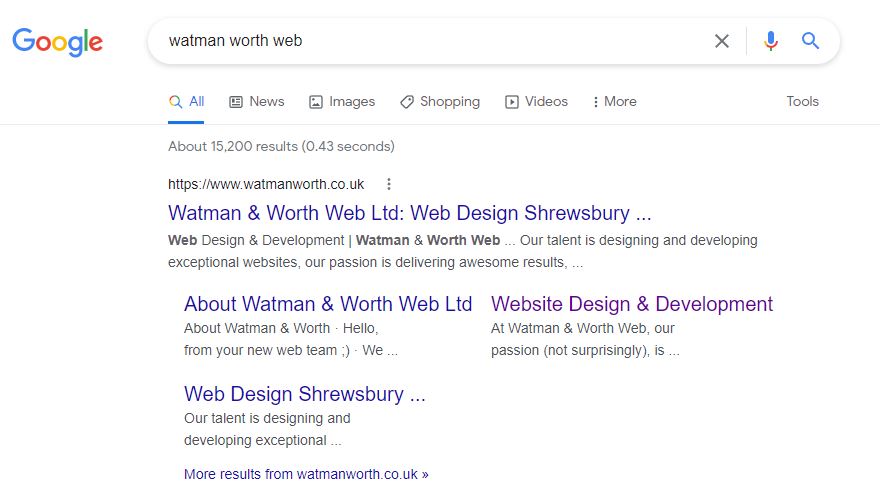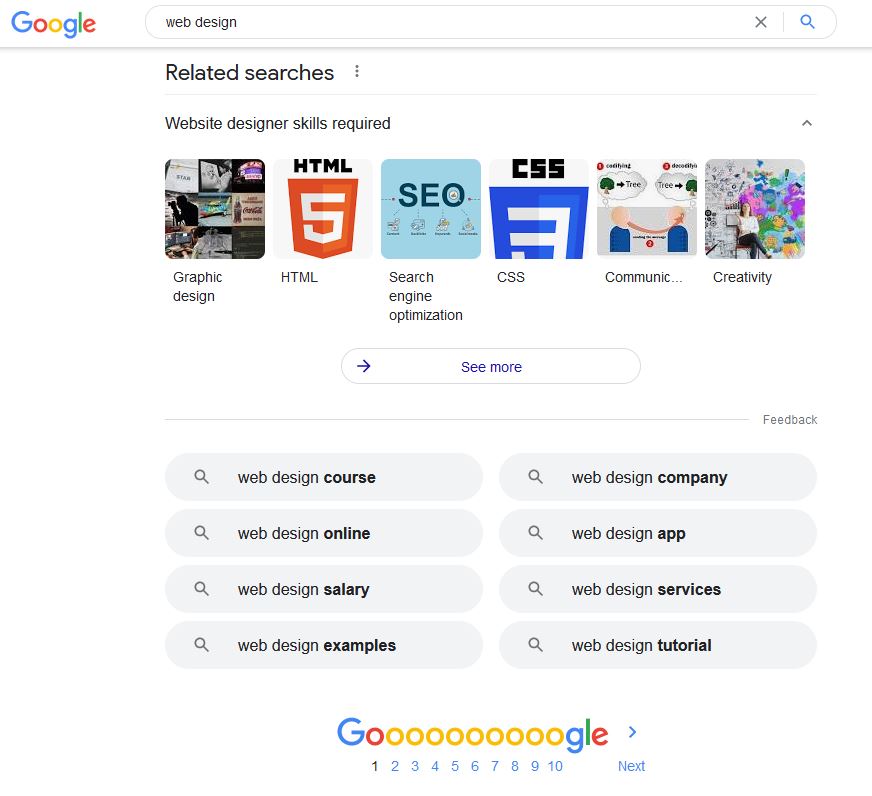How to do Keyword Research for your website

Understand how to research and work with keywords, and how to implement them into your website.
Keyword search queries are conducted by users to find the results they are looking for. A keyword search is quite simply, what the user types into Google (or another search engine) to find a business, service, answer or product. It is the term they type in the search engine to find what they are looking for.

Before we can even begin to promote our services and products to our demographic it is essential that we first understand exactly what they are searching for.
Our perception of what they are searching for, the terminology they use and how they try and find us may be completely different from the reality.
We do not want to be targeting search phrases that no one is looking for – here are a few important concepts about keyword targeting;
- Learn how to research keywords that matter to your industry
- Understand the mechanics of search engines
- Assess the relevance and benefit of keywords to your website
- Evaluate potential website traffic gain from keywords
- Identify search queries that you are being found for and your website rankings
- Choose the right keywords in line with what your customers are searching for
- Select keywords that will bring relevant visitors to your website
- Assess the value in using long-tail keywords
- Use tools that help you measure and analyze keyword difficulty, trends and competition
- Implement and benefit from competitor analysis
Why is keyword research important?
Keyword research is one of the most important steps in effective content marketing. Our keywords are the core signals that tell both users and search engines what our content is about.
Search engines such as Google and Bing return results to users based on the websites relevance to the search query performed.
One of the most important factors in ranking in these results is having the correct keywords in the content of your website.
If you do not have the relevant keywords in your content, the search engine does not know that your website will be able to meet the needs of the users search.
The use of keywords and phrases in your content tells search engines and users what your website is about and indicates how relevant your services are for various search terms.
For this reason it is important to include your most effective terms and phrases in your content, especially in key areas on your website such as Page Titles, URL’s, Title Elements, Image ALT Tags, Meta Descriptions and prominent paragraphs of your on-page content.
Adding your keywords to these areas will firstly tell search engines that your content is relevant for the search term, and ideally your page will be included in the search results for this term/phrase.
Secondly, this will generate your search result snippet that is displayed in Google and ultimately, with proper implementation, encourage more user clicks to your website.

If a user can see their search term in your search result they are much more likely to click through to your site.
This means ensuring that your META DATA (the information in your title and meta description) is well written.
There is limited time and space in which to make your impact so it is important to do so with effective keyword usage and placement. Do not waste your precious character-count on information that can be relayed elsewhere.
Remember, Conversion begins right there in those Google Results.
To get this right we must understand a few core concepts;
- How users search using keywords
- How search engines use keywords to determine search results
- How to identify the most effective keywords for our business
- How to implement these keywords to our website
Once we understand the factors to do with Keywords the whole idea of SEO becomes a lot simpler. There are, of course, a great deal more factors and considerations but this is a huge part of the process.
Getting this right can significantly increase your chances of obtaining more relevant traffic direct from search engines and can certainly create more opportunities to drive sales and conversions through your website.
Understand how users search using keywords
Although you will get users who will use very specific search terms, if you’re anything like me, your Google searches will be rather primitive to say the least.
If I am buying a present for a friend – because I’m nice like that, I may think that it will be an awesome idea to get them a funny t-shirt with a photo of them printed on it that will no doubt embarrass them. ;o)
Engaging my caveman Google brain, I will search for something along the lines of “t-shirt printing”, “funny t-shirt printing” or if I am feeling exceptionally determined I may try something like “customisable t-shirt printing”.
From this, I will now expect Google to go off and do the searching for me and trust that it will hunt out websites that will fulfil my request. All I will have to do is click one of the first and foremost results that Google tells me is relevant for me.
How do search engines use keywords to determine search results?
What happens when I hit the “search” button?
From my search query, the almighty Google will search billions of websites that it has previously crawled, indexed and categorised during its highly intuitive algorithms. The search engine will interpret the intent behind my query as best as it can.
Based on an extensive number of factors, including quality and relevance of content and links, presence and prominence of keywords, social activity and website accessibility, Google will present me with results that it believes have the potential to meet my needs.
The most relevant, clear, trusted and popular sites will appear at the top of the list. And we all know how important it is to be in the top position in search engines.
So what does this process mean for us and our choice of keywords? Let’s go back to our example to make sure I find my “t-shirt printing”.
Based on my search term, if you ARE a t-shirt printing company, but are using terms like “Professional humorous designs, on exceptional quality garments using cutting edge, high resolution printing” you are more than likely going to miss out on a fair chunk of your target audience.
Even though you may be very accurately describing what you do and what services you offer, the focus of your description is on something that users will have no idea to search for.
So even though you might use the most “cutting edge, high resolution printing” to get my design on a t-shirt, this is not what my lazy Google fingers are going to be typing to find a company that can print my funny design.
I am not saying that you should not have a page or area of your site that DOES show off the fact that you use “cutting edge, high resolution printing”. After all, it is important to show off your unique selling points and give assurance of quality and service.
What I AM saying is that you should prioritise information based on keyword popularity and relevance.
This means Research, Research, Research!
How to identify the most effective keywords for our business
Keyword and Industry Research is essential to writing content that will get you found in search engines. Make sure you know what your CUSTOMERS are searching for, not just what YOU would search for to find your website.
Before writing reams of content and producing page titles and meta descriptions that will wow and amaze your audience with industry terms and sales pitches, keep in mind that they may not be familiar with your terminology and phrases.
Incorporate terms and phrases into your content that your potential customers will use to find you and your services. Get into their mind set and describe your services in a way that they can identify with and relate to.
Step 1 - Brainstorm Ideas
Bring your team together and start simple by creating a list of the top 10 keywords or phrases that are relevant to your business, services and products. These terms should be relatable to your target audience.
For example, as a web company, we may target key phrases such as;
- "web design"
- "website development"
- "social media"
- "seo"
- "website hosting"
- "app development"
We may want to include our locations for local business targeting;
- "Shrewsbury"
- "Shropshire"
- "Welshpool"
Step 2 - Expand your ideas
Once you have done this, we recommend you take each one of your terms and create keyphrase clusters. The aim here to expand the simple keyphrase to more specific phrases that a user might be searching.
So, boot up a spreadsheet and add in the search terms you have brainstormed as column headings.
Then for each of the keywords, create a sublist of related terms and phrases for that particular strand of your business.
For example, from our "Web Design" keyphrase;
- "web design services"
- "web designers in Shrewsbury"
- "website design professionals"
- "business website design in Shrewsbury"
A great way of comparing your ideas is to use Google Search.
Enter your keyphrase and click search in Google. Then at the bottom of the results you will find a useful list of popular keyphrases that real users have searched for.

You can also "Answer the public"
This is a fantastic online tool where you can enter your keyphrase and generate a list of related questions and topics that people are asking and talking about. This information is pulled directly from real searches across the web, so this data will be extremely useful in creating keyphrases in your content that directly speak to a relevant audience. We recommend you do this for each of your key phrases in order to start to generate key questions that need to be answered. This will be a huge help when creating blog posts and resources to support your core pages and attract a wider scope of traffic to your website.
Check out Answer the public >>
Use tools like Google Keyword Planner to do some research into average traffic volumes for particular keywords and phrases. This will give you a feel for the types of terms that users are searching for.
You'll want to focus on a cross section of Keywords and Phrases with High Traffic Volumes and High Relevance.
Lower competition is obviously better, but of course the two do not generally come together. Highly specific, but low search volumes can also be effective for gaining very relevant pre-qualified traffic.
Investigate your competition, ideally the ones appearing on page 1 of Google for your industry. See what keywords they are focusing on and look at the sorts of things they are doing to communicate your common messages.
Implement these keywords to your website
Once we have the keywords and phrases that we are confident are going to be effective for gaining relevant traffic we need to implement this into our site.
Firstly it is important to understand that we need to be sensible and natural with the number of times we place the keywords in our content. Write your content for your users, with search engines in mind.
Not the other way around.
Include variations of your keywords is a number of ways but do not overdo it. If you start crowbarring in unnatural instances of your keyword the page will appear spammy and may even incur search engine penalties.
We need to ensure that we are including our keywords in the right places and that they are not buried at the bottom of pages.
You should include your Keywords into;
- Page Title
- Image ALT Tags
- Early Content Paragraphs
- Title Element
- Meta Description
- URL
- Anchor Text of Internal & External Links
There is obviously a great deal to take in and consider when it comes to your keyword preparation and strategy so make sure you take the time to plan, research and implement with care.
The way in which you do this can be the make or break of your success in organic search engine results so be sure to consider each of the points we have discussed here and if you are getting serious about your search engine rankings then I would highly recommend doing some further reading on each of these topics.
Your keyword strategy and implementation is just one part in your overall content marketing and SEO campaign, but never the less it is a vital part, so let’s get it right.
Blog Categories
Become a guest blogger
Do you have an article to post about Digital Media & Marketing? Maybe Design or Social Media is your passion?
If so we'd love to hear from you.
Looking for a new website?
If you are looking to develop a new website for your business, why not get in touch and have a chat through your project.
We'll provide you with a free quote and website specification to assist with your planning.



















